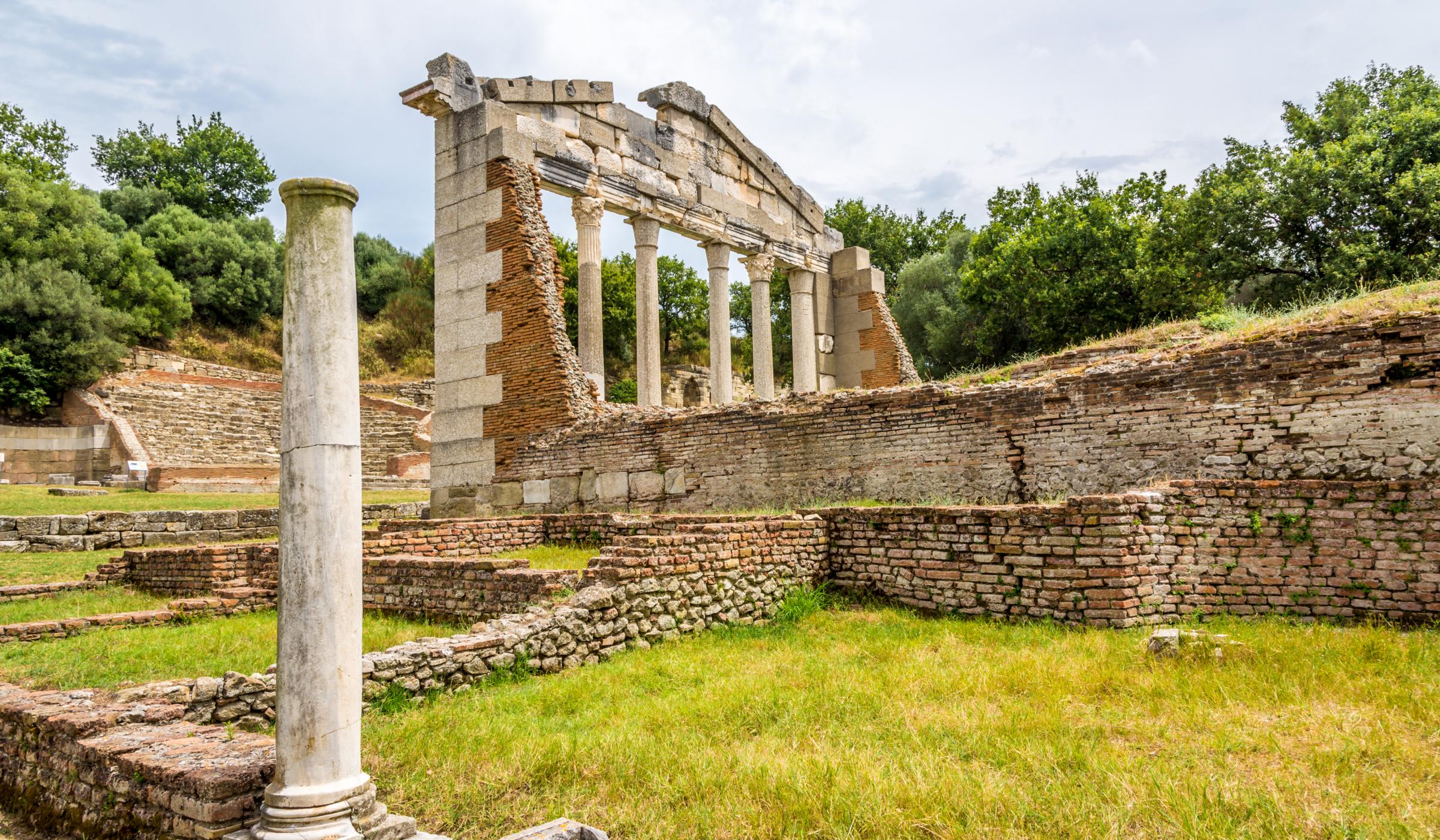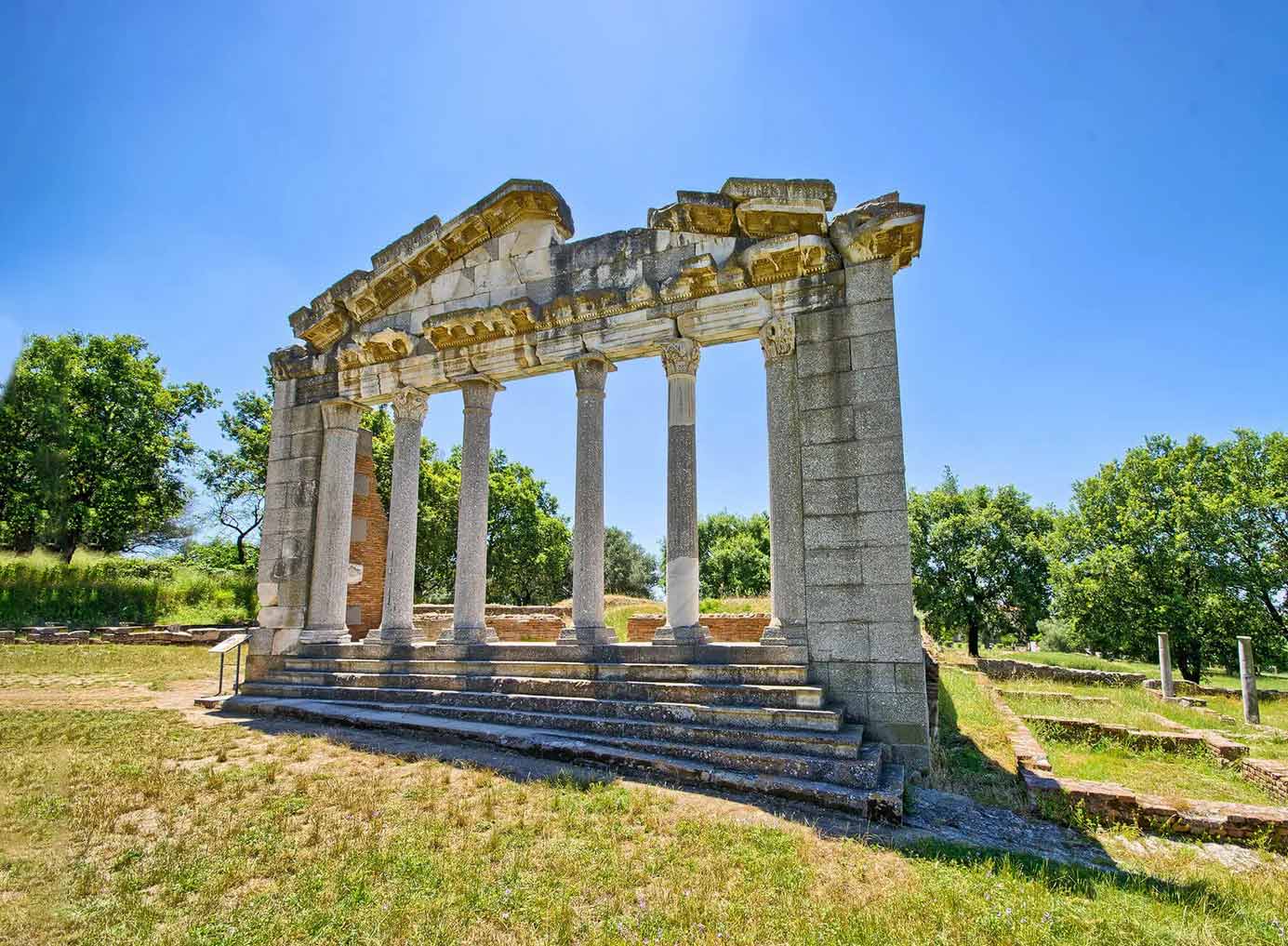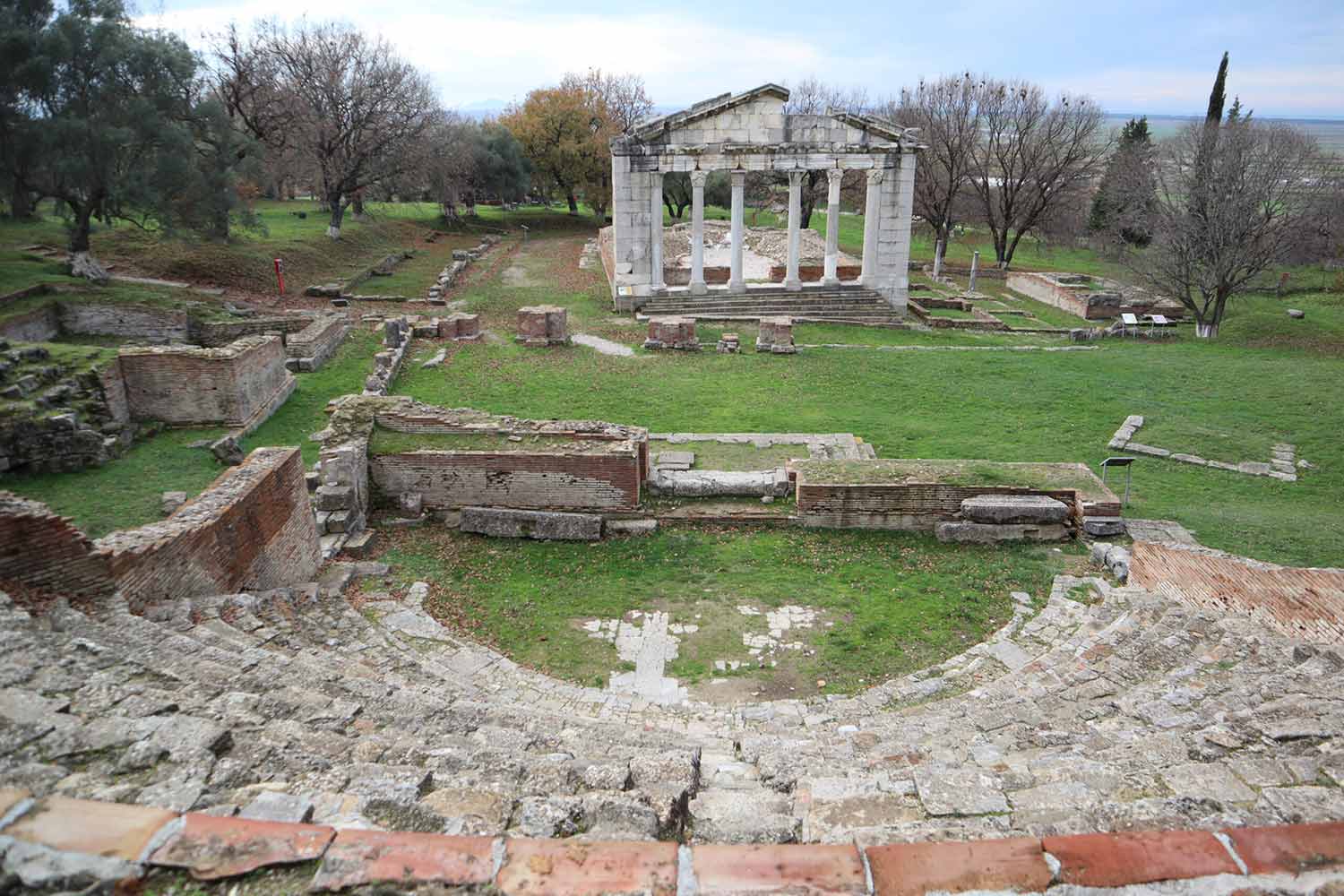
Apollonia Archaeological Park
Apollonia (Ancient Greek, Koine Greek: Ἀπολλωνία, ἡ; city-ethnic: Ἀπολλωνιάτης, Apolloniates; Latin: Apollonia; Albanian: Apollonia or Apolonia) was an Ancient Greek trade colony which developed into an independent, and later a Roman city in southern Illyria in classical antiquity. It was located on the right bank of the Aoös/Vjosë river, approximately 10 km from the eastern coast of the Adriatic Sea. Its ruins are situated in the county of Fier, close to the village of Pojan, in Albania.

Apollonia was founded around 600 BC by Ancient Greek colonists from Corinth and possibly Corcyra as a trading settlement after an invitation by local Illyrians on a largely abandoned coastal site. It was perhaps the most important of the several classical towns known as Apollonia. Corinthian colonial policy seems to have been relatively liberal, and was more focused towards resource extraction so as to support the growing Corinthian population, rather than exploitation or expulsion of the local Illyrian population. Apollonia gradually gained political independence from Corinth and was organized as a polis under an oligarchic system. According to Aristotle, In Apollonia’s oligarchy, a small Greek elite class largely descended from the original colonists ruled over a largely local Illyrian population.
Apollonia flourished in the Roman period. From the 2nd century BC it became an important military staging ground for the Roman armies. It was home to a renowned school of philosophy, acquiring fame as a cultural center, and by the end of the Republican period it became a major center of Greek learning. The reputation of Apollonia attracted many brilliant students from different parts of the empire, including Augustus, the first Roman emperor. The city began to decline in the 3rd century AD when its harbor started silting up as a result of an earthquake. It was abandoned in the 4th century AD.
The ruins were designated as an archaeological park on 7 April 2003 by the government of Albania.

The Albanian and French archaeologists, often compare Apollonia with the Roman city of Pompeii in Italy, because much of the ancient city is still buried and needs to be further excavated, only ten per cent of the city has been excavated.
Apollonia is so romantic, magical, is an absolutely fascinating place, perfect combination of nature and history, is a place you can fall in love.
In the park there is a museum with incredible Greek and Roman artifacts and sculptures, from the Illyrian ages, excavated from the area and a Byzantine of the thirteenth century church of Saint Mary, brochures in Albanian, English and Italian languages are available.
Visitors from all over the world visit the site with the highest number come from Germany,Switzerland,France,Austria,Italy,Russia,Poland, Czech Republic etc.
Often locals visit the place for a picknic or brides and grooms at the afternoons will take a photos and videos for their marriage.
